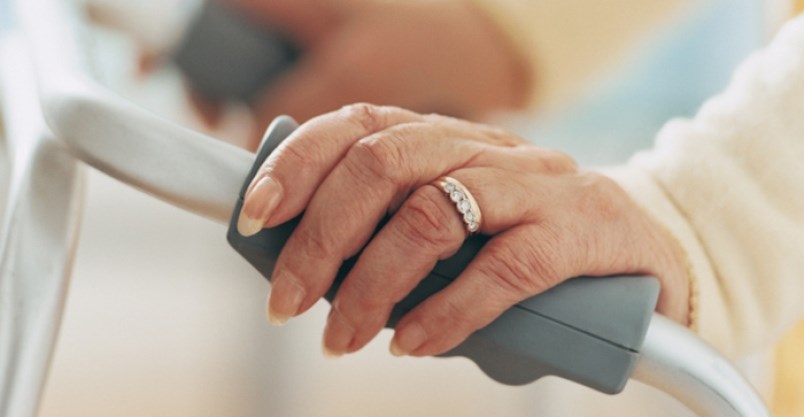The B.C. government needs to hire more staff and upgrade infrastructure at seniors’ homes, a care providers’ group says.
The BC Care Providers Association released its annual report on Tuesday, calling for an immediate and serious investment of $300 million over the next five years. The group hopes the federal government will chip in the same amount.
“Only 29 per cent of British Columbians believe that seniors' care will be there when they need it,” CEO Daniel Fontaine told reporters at a news conference in Burnaby.
More than 90 per cent are already feeling the crunch, Fontaine added, as part of the ‘sandwich generation:’ people care for both children and parents.
The report said the funding would go toward training, staff time, better infrastructure, and new models of care, and would mean more direct attention for seniors in residential care and double the minimum home care visit to 30 minutes.
Natasha Aruliah said she has felt the lack of support for at-home care for her 80-year-old father for the last year.
“My father needs full-time care. He’s towards the later stages of Alzheimer’s,” said Aruliah, who lives in the Lower Mainland. “My father has regressed back to his childhood in Sri Lanka – speaking Tamil, wanting string hoppers and our food.”
Providing those comforts to her increasingly deteriorating father has proved all but impossible with only 15 minutes of home care four times a day.
“It’s not enough. They barely get time to take off their boots and their coats and then they have to go out the door again,” said Auruliah. “It means my dad has to feed and toilet on demand at the times that they arrive, not at the times when he’s needing to."
The lack of familiarity leaves her father confused and upset.
“They don’t know who he is. They don’t know the story of this man who is an electrical engineer, a telecommunications expert who’s travelled and lived in most countries in the world,” she said. “These strangers are coming in and doing some of the most intimate actions with him as they try to clean and care for him."
Fontaine challenged the province to keep seniors out of acute care beds.
Currently, 13 per cent of all acute care beds in B.C. are being used by patients that should be in other levels of care.
“Every single one of those acute care beds is $1,800 a day in public investment,” he said. "Compare that to a residential care setting, which would be $200 a day and even less than that for home care.”
Aruliah can understand why people call for emergency care. In 2015, her father was in acute care four times because there wasn’t anywhere else for him to go. By the time he got to the top of the waitlist, he had regressed too far to use it.
“My dad worked hard (all his life). I don’t want to see him discarded on a rubbish pile because we don’t have the time and resources to give him what he deserves."
Among the 30 recommendations are the following:
• Set as a minimum 3.36 direct care hours per day, per senior in publicly funded care homes
• Increase the minimum home care visit from the current 15 minutes to 30 minutes
• Invest up to $5 million per year over the next 5 years to recruit, train and retain the necessary workers to support a rapidly ageing population
• Allocate up to $20 million to re-purpose underutilized/unused care beds in order to meet the BC government’s commitment to further expand end-of-life care by 2021
• Allocate up to $2 million for a Care Credits program so seniors or their families can choose the caregivers of their choice
• Establish a Seniors Quality of Life Fund to support quality of life for seniors in residential care which focuses on improving the physical, spiritual, psychosocial and mental well being through increased access to recreational, occupational and physiotherapy.



